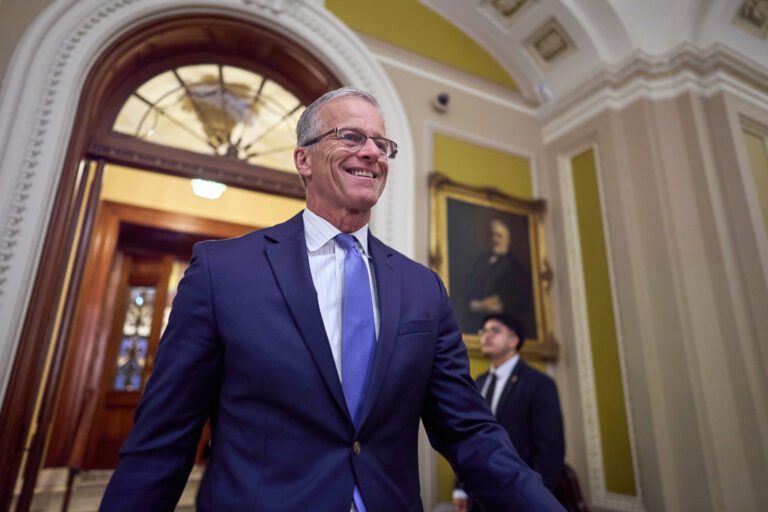Senate Democrats Propose Measures to Curb Trump’s Rescission Powers Ahead of Funding Deadline
As the U.S. government nears a potential shutdown, Senate Democrats are exploring "concepts" aimed at limiting President Trump’s rescissions and impoundment powers. This initiative appears to be a vital step towards gaining Democratic support for a government funding deal.
Impending Government Shutdown
The deadline looms large as September 30 marks the end of the fiscal year. Without a funding agreement, federal operations may come to a halt. Currently, Senate leaders John Thune (Republican) and Chuck Schumer (Democrat) have not scheduled any meetings to negotiate a deal.
Key Senate Reactions
- Senator Chris Murphy, a member of the Senate Appropriations Committee, emphasizes the necessity for legally binding language in any long-term funding deal. This language would empower plaintiffs to compel the executive branch to disburse funds and prevent unilateral cuts by the president.
- Murphy remarked, “The budget isn’t worth the paper it’s written on if the president is going to act illegally…”
According to reports, President Trump is currently holding back over $400 billion in congressionally appropriated funds, heightening tensions around fiscal responsibility.
Proposal Concepts from Senate Democrats
Democrats are brainstorming strategies to effectively restrict Trump’s authority over appropriated funds. Senator Tim Kaine noted, “A number of us have floated concepts… It’s got to be wordsmithed right so you can’t end run it.”
Senator Thom Tillis Supports Partial Restrictions
Even some Senate Republicans, including Thom Tillis, show openness to limits on presidential powers. Tillis stated, “I hope that we can make progress on anti-rescissions… but I doubt it will pass in a GOP-controlled Congress.”
Challenges Ahead
Despite some bipartisan acknowledgment of the issues, prominent figures like Congressman Jodey Arrington, chairman of the House Budget Committee, assert that any restrictions are unlikely to gain traction in the House. “I think the courts are going to be the arbiter of that,” he added, referring to the controversial "pocket rescission" strategy, which allows the president to cut funding without congressional oversight.
Potential Legal Battles
- Pocket Rescission: A legally dubious method for the president to unilaterally reduce funds.
- Future legal challenges could end up in the Supreme Court, prolonging a resolution and potentially leading to a clash of powers.
Conclusion: Urgency for Action
As discussions unfold amidst this pressing deadline, the implications of Trump’s spending authority remain a critical focus for lawmakers. If Democrats can successfully negotiate restrictions on presidential powers, it may set a precedent for future financial legislation.
For more insights on government appropriations and funding, visit Congress.gov or GovTrack.us.
This ongoing dialogue represents a key dimension of legislative strategy as the government prepares for a crucial budgetary crossroads. The outcomes could reshape the boundary between congressional authority and executive discretion.


